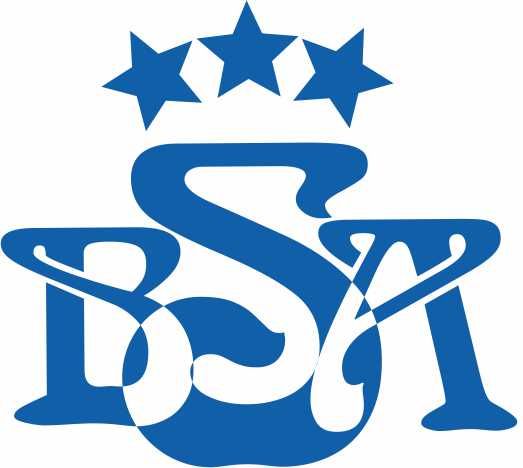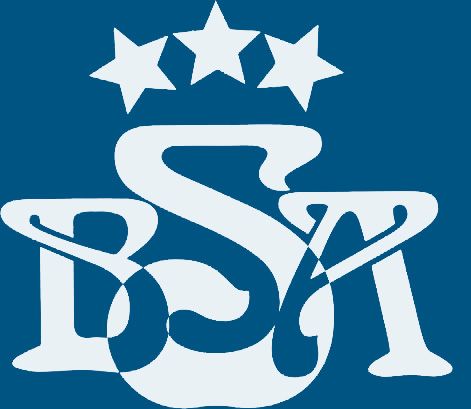The enrollment of students in the study program "Psychology" is not conducted.
Dear students!
The limited liability company "BALTIC INTERNATIONAL ACADEMY" (the Academy) informs you that on 15 November 2024 the Academy has submitted to the Appeals Board an application for contesting an administrative act (the Appeal Application). The Academy has appealed against the decision No 2024/25-A of the Study Quality Commission of 18 September 2024 on the accreditation of the study direction and the corresponding study programmes, by which the Study Quality Commission decided to refuse to accredit the study direction "Psychology" (Study Direction) and the corresponding study programmes - academic bachelor study programme "Psychology" (43313) and professional master study programme "Psychology" (47313) (Study Programmes corresponding to the Study Direction) implemented by the Academy.
The Appeals Commission extended the deadline for making a decision regarding the Appeal until April 17, 2025.
The Academy will keep you informed of the progress of the Appeal before the Appeals Committee.
Yours sincerely,
Limited Liability Company "BALTIC INTERNATIONAL ACADEMY"
Dear students of the study field "Psychology"!
We inform you that on September 18 of this year, the meeting of the Study Quality Commission (SQC) was held and a decision was made to refuse the accreditation of the study field "Psychology".
The motivated decision of SQC will be received within a month and it is appealable, therefore BIA is considering the possibility of appealing it in accordance with the procedures established by law, respecting the rights and interests of students.
All information about further options is available in My BIA in your personal offices.
To receive more detailed information, you can contact:
Study direction "Psychology" in Riga, e-mail:
BIA Daugavpils branch, e-mail:
BIA Liepāja branch, e-mail:
BIA Administration
Advantages of the programme: The professional master’s study program has no equivalents in other Latvian universities, training psychologists in work and organizational psychology. Psychologists in the field of work and organisational psychology use psychological research methods to study and assess individuals, groups and organisations, provide counselling and psychological support in one or more of the following areas: (1) analysis of organisational work environment and employee optimal functioning in a particular work environment: work and workplace planning with a view to effective use of equipment and resources, analysis of the psycho-social environment in the workplace, stress analysis and burnout prevention, and solving questions of professional deformation and work-life balance; (2) support in the process of professional self-determination: individual choice of profession and career path based on professionally important characteristics, analysis of potential interests and motivation from individual and organisational perspectives; (3) implementation of preventive and prophylactic measures for health promotion aimed at improving work safety and employee efficiency.
In-depth study directions of programme: The specificity of the Baltic International academy professional Master's study programme “Psychology” is in giving deeper knowledge of experimental psychology, cognitive psychology, neuropsychology, social psychology, implicit social cognition, work and organizational psychology. Special attention is paid to the study of the cognitive mechanisms of implicit social cognition as well as to the applied research on implicit attitudes in various spheres of professional activity, which is organized in the Laboratory of Neurocognitive Implicit Processes. The professional master’s study program “Psychology” provides knowledge in actively developing module business psychology – one of the branches of Occupational and Work psychology. The main characteristic of the program – its content, unique courses which provide students with present day knowledge for professional career in psychology, to develop research skills necessary to carrying out a highly competent independent research, and to train practical skills and abilities necessary for professional performance in any sphere of psychology.
Graduating the professional Master’s study programme “Psychology” students have acquired the following knowledge, skills and competences:
Knowledge:
- The ability to demonstrate in-depth or expanded knowledge and understanding of psychology as well as knowledge and understanding of the latest developments in the professional field of work and organizational psychology; the ability to critically evaluate, analyze and compare different theories of psychology, to understand the regularities of the science of psychology, as well as to understand the problems of science in the interaction of different fields.
- Specific knowledge of work and organizational psychology.
Skills:
- Graduates are able to apply the professional skills required by the psychologist’s professional standard, namely: psychological counselling skills, skills in individual and group or organisational psychological assistance, psychological research (assessment) skills, skills in preparing a psychologist’s expert opinion, skills in providing feedback on the results of psychological research, skills to cooperate and work in a team and cooperate with other professionals in the process of client psychological reception, performance appraisal skills.
- Graduates are able to carry out psychological research using scientifically based methods, to identify the research problem or the overall theme of the research, to analyze the existing literature on the chosen problem or theme, to raise research questions or hypotheses, to plan the research process (procedure), to determine the research sample and methods to be used in the research, to conduct research, to collect research data or information, to analyse the obtained results, interpret them and draw appropriate conclusions, to identify the practical applicability of research results and present them.
- Graduates are able to successfully establish contact and effectively use communication skills in accordance with clients' needs and psychologist's tasks, behaving in a supportive manner, respecting their professional work boundaries, neutrality and integrity.
- Graduates are able to present a reasoned explanation and discuss complex or systemic aspects of the discipline or profession concerned both with professionals and non-specialists.
- Graduates are able to independently advance their development and specialization, to take responsibility for their continuing education and professional development, to attend professional supervision, and to act responsibly to their psychological state and seek help when if necessary.
- Graduates are able to independently start a business, to offer innovations in psychology, to conduct research or to continue studies in difficult and unpredictable circumstances and, if necessary, to transform them by applying new approaches.
Competences:
- Graduates are able to independently formulate and critically analyse complex scientific and professional issues, to justify decisions, and to conduct further analysis if necessary.
- Graduates are able to independently collect, select, analyse and use the information they need to assist the client.
- Graduates are able to integrate knowledge from different fields, to contribute to creation of new knowledge and development of methods of professional activity.
- Graduates are able to demonstrate understanding of and ethical responsibility for the possible impact of their professional activity on society, to participate in the development of psychology and the profession of psychologist, to continue their education.
- Graduates are able to understand and apply the ethical principles of psychology as well as to take independent decisions and solve problems in order to provide high quality psychological assistance services.
Career opportunities:
- The professional Master’s degree gives the right to continue studies in a doctoral study programme, provided the requirements for admission to the respective study programme are met (Cabinetof Ministers Regulation No 512 “Regulations on the state standard of the second level professional higher education”).
- Most program graduates work in their specialty (enterprises and public institutions, personnel management consulting firms, social services, social agencies and private practice).
Programme content.
The first study year. You will acquire knowledge in the study courses that provide in-depth study of the most recent developments in the theory and practice in the branch of work and organizational psychology, study courses in research work, creative work, design work and management: Personnel psychology; Professional development of employees;Work psychology (theory and practice); Organizational psychology; Methods of psychological research, data analysis and interpretation; Business planning in psychology and marketing of psychological services; Workplace counselling. 1st and 2nd internship, Elaboration of Master paper I.
2nd study year. You will acquire knowledge in the study courses in research work, creative work, design work and management and restricted mandatory elective courses (work and organizational Psychology): Methods of psychological research, data analysis and interpretation; Entrepreneurship and Management, Cross-cultural psychology: business communication in organization(practical work) (theory and practice); 3rd and 4th internship in organization, Master's thesis defense.
Study Programme is carried out according to BSA Licence No.04030. The new accreditation process has started.
Contacts:

The Head of Study Direction

Methodist of Study Direction
Office Hours:
Tuesday 14:00-16:00
Thursday 16:00-18:00





